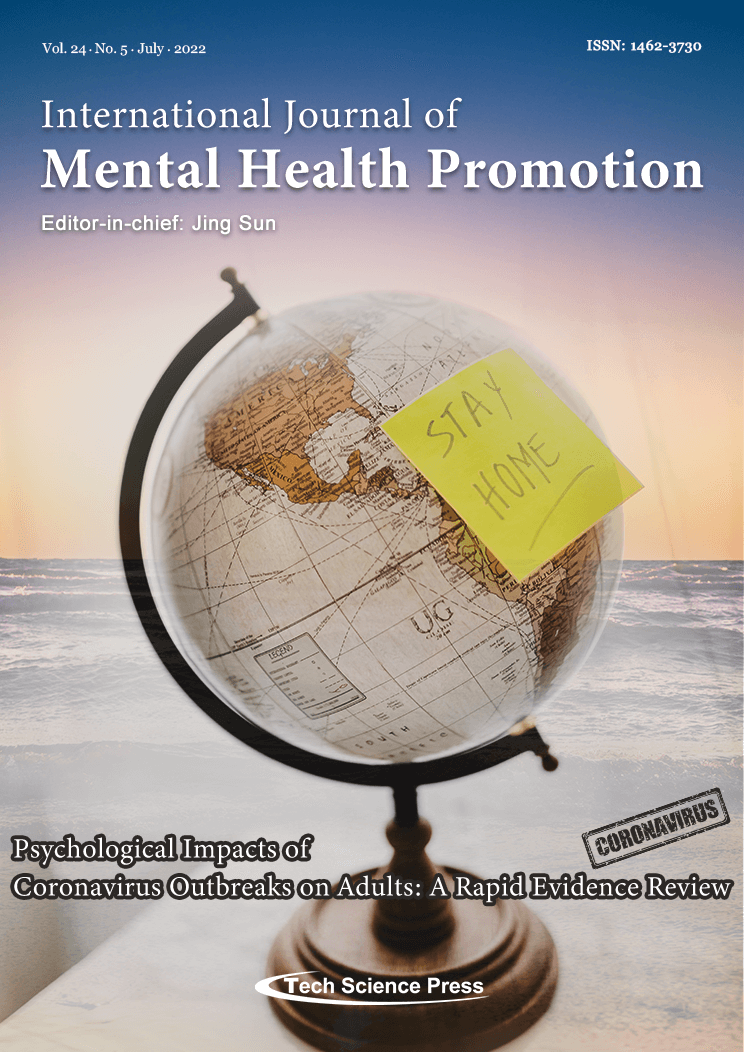Risk Factors and Gender Differences for Depression in Chilean Older Adults: A Cross-Sectional Analysis from the National Health Survey 2016–2017
Gabriela Nazar1,2,*, Carlos-María Alcover3, Yeny Concha-Cisternas4,5, Igor Cigarroa5, Ximena Díaz-Martínez6, Mariela Gatica-Saavedra7, Fabián Lanuza8,9, Ana María Leiva-Ordónez10, María Adela Martínez-Sanguinetti11, Miquel Martorell2,12, Fanny Petermann-Rocha13,14, Claudia Troncoso-Pantoja15, Carlos Celis-Morales16
International Journal of Mental Health Promotion, Vol.24, No.5, pp. 679-697, 2022, DOI:10.32604/ijmhp.2022.020105
- 27 July 2022
Abstract Depressive disorders are recognized as one of the most common mental health conditions across different age groups. However, the risk factors associated with depression among older people from low-and middle-income countries remains unclear. This study aims to identify socio-demographic, health and psychosocial-related factors associated with depression in Chilean older adults. A cross-sectional study was carried out in a representative sample of 1,765 adults aged ≥60 years participants from the Chilean National Health Survey 2016–2017. Depression was assessed with the Composite International Diagnostic Interview (CIDI-SF). Associations between the exposure variables and depression were investigated using Poisson… More >
